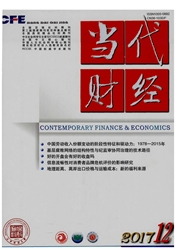

 中文摘要:
中文摘要:
从社会福利视角对三网融合政策实施过程中有线电视产业的福利变化着手,利用中国91个城市2009-2012年的相关面板数据,构建双重差分模型,实证考察三网融合政策的实施对有线电视产业的影响效果,并就这种影响的时效性进行了进一步的识别。福利分析结果表明,只有当进入的通信企业与在位有线电视企业进行适度竞争时,消费者的福利才会获得改善。实证结果显示,在实际推进三网融合过程时,政策的实施对促进试点城市有线电视产业收入增长率有3.4个百分点的贡献,但是这一促进作用只在三网融合政策实施的当年比较显著,在随后的时间里,这一效果不仅会减弱,还有可能产生负影响。此外,通过对不同的子样本进行分析发现,三网融合政策的实施效果在有线电视产业发展程度较高、具备一定经济实力的地区更为明显。
 英文摘要:
英文摘要:
From a social welfare perspective, this paper first analyzes the changes of the welfare of the cable TV industry during the process of implementing the three-network integration policy, then it constructs an difference-in-differences model with the relative panel data of China' s 91 cities from 2009 to 2012 to examine empirically the impact of the implementation of the three-network integration policy on the cable TV industry. It also makes a further identification of the timeliness of the effect. The results of the welfare analysis show that the consumer welfare can be improved only when there is a modest competition between the communication companies newly entered and the existing cable TV companies. The empirical findings indicate that during the process of promoting the three-network integration, the implementation of the policy contributes 3.4 percent to the sales growth rate of cable TV industry in the pilot cities; but this effect is relatively significant only in the year when the policy is implemented, then in the following years, this effect will become not only weaker but also negative. In addition, it is found through the analysis of different sub-samples that the implementation effect of the three-network integration is more significant in the areas with higher degree of the development of cable TV industry and stronger economic strength.
 同期刊论文项目
同期刊论文项目
 同项目期刊论文
同项目期刊论文
 期刊信息
期刊信息
